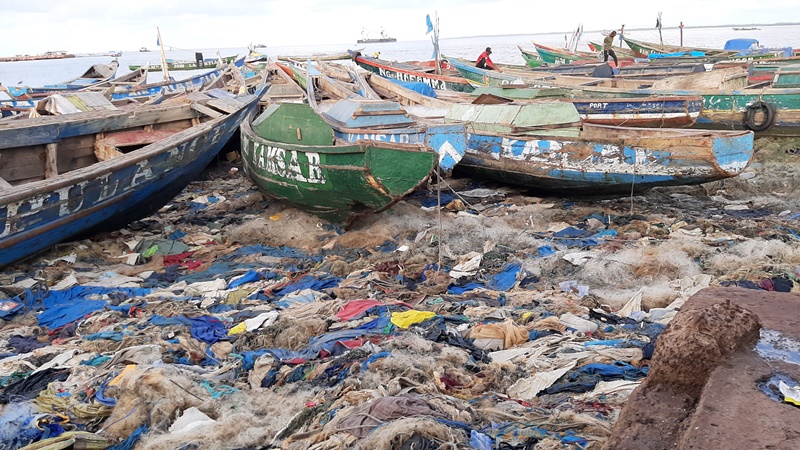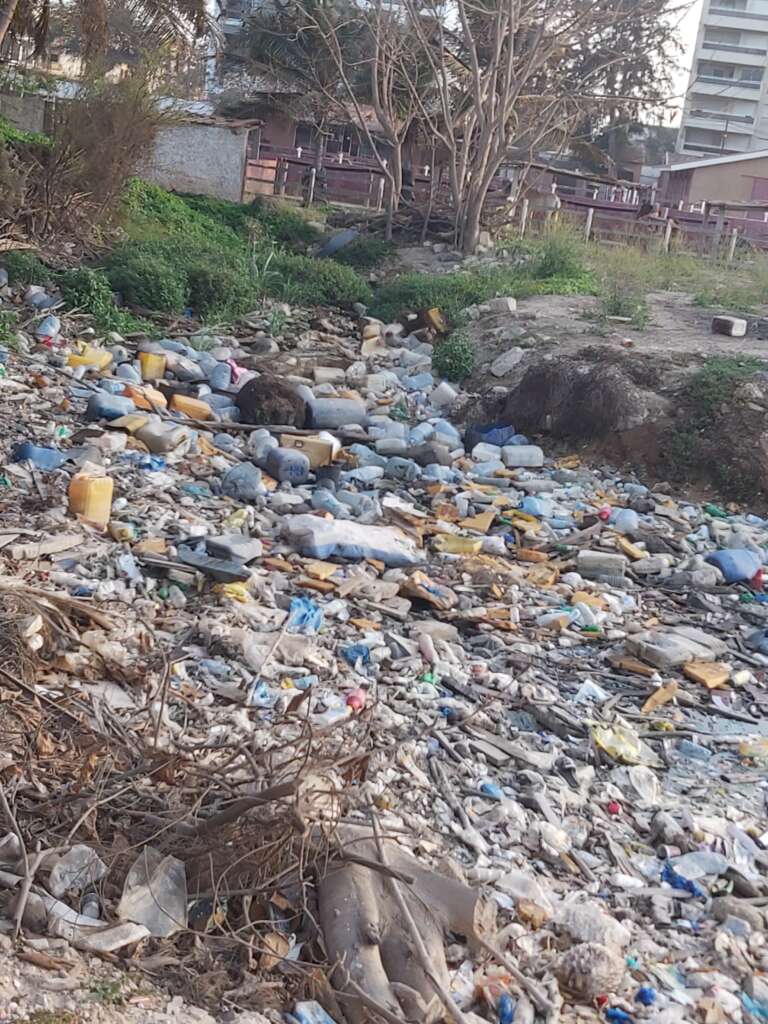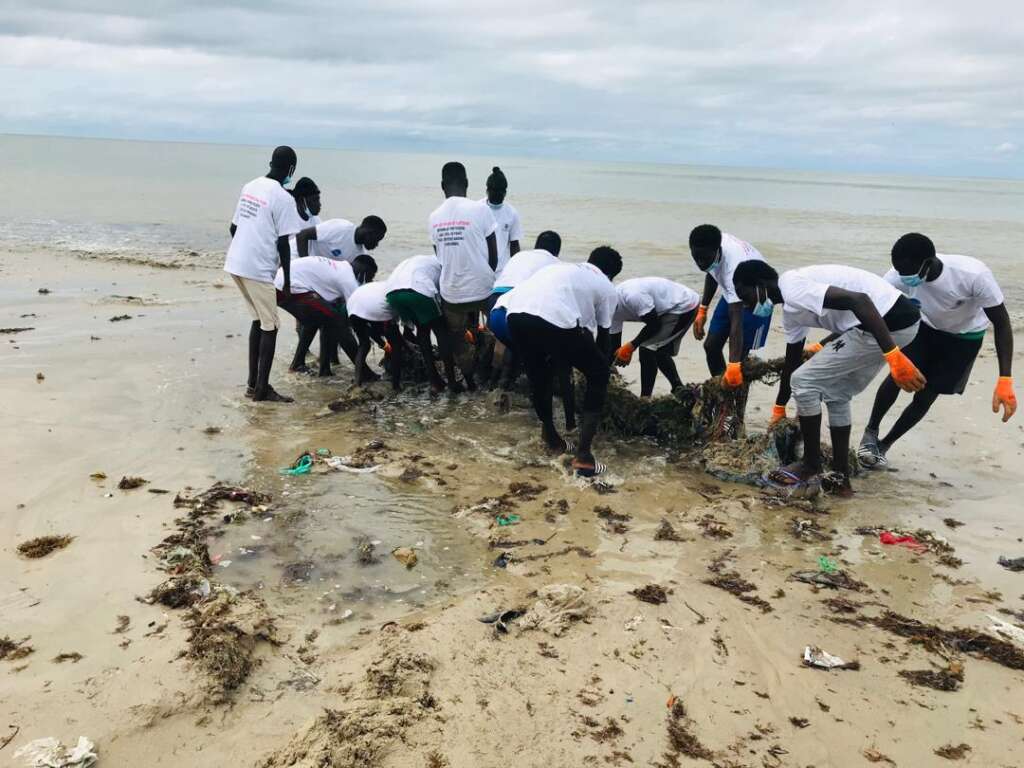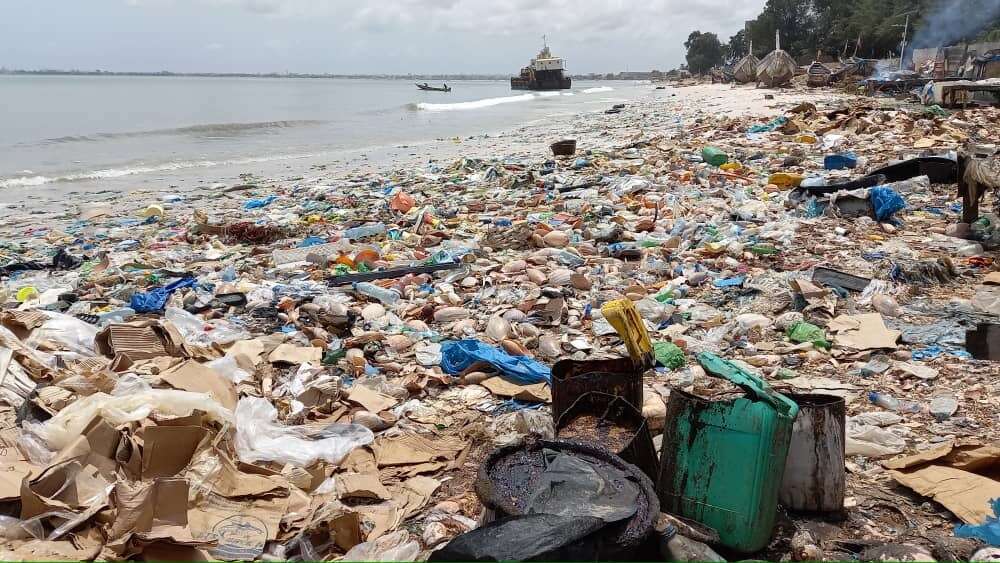Every minute, one million plastic bottles are sold worldwide, according to the United Nations Environment Organization. Every day, Americans alone use 500 million disposable straws. And every year, five thousand billion plastic bags are used around the world.
Illustrative cases
As much as strong images of plastic fields on the continent have circulated from the 70s to now, beaches, seashores and riversides are experiencing this plastic invasion. In these places, calabashes, cardboard boxes and packaging paper (which is eventually degradable) have been replaced by plastic bags and sacks. Fishmongers, processors, fishermen and other secondary actors leave these polluting objects on the shores and at sea.
The pollution of marine and coastal ecosystems by human activities, including plastic, is also a scourge for our communities. We must promote the use of biodegradable materials; ban the use of single-use plastics that pollute our oceans, invest in the treatment of waste that litter our beaches and waters.
In Senegal, the situation along the sea and other wetlands is “alarming”. Some observers say that “our coastal areas have become plastic dumps”.
This “sad” situation has prompted the African Confederation of Professional Organizations of Artisanal Fisheries (CAOPA), together with the Association for the Promotion and Empowerment of Artisanal Maritime Fisheries (APRAPAM), to take the initiative of cleaning up certain beaches in the country (Cayar, Joal-Fadiouth and Djiffer), and to raise awareness of the dangers of plastic in sea.

We are not on a landing beach but at the bottom of Hann Bay, to show how coastal currents play a role in the movement and accumulation of discarded waste.

ALL OF THIS IS MAN’S ACTIONS
Experience with APRAPAMCAOPA
Coastal communities are largely responsible for this pollution of marine environment. The non-application of regulations adopted by authorities to fight against the proliferation of waste also contributed to worsen the situation
EXAMPLE OF JOAL-FADIOUTH
This operation in Joal-Fadiouth PMA generated about 40 tons of waste, 80% of which was plastic. Observations have shown a significant presence of monofilament fishing nets on the beaches and seabed, in a turtle nesting area and areas with rich sea grass beds.

- Pushing the investigations in the neighboring countries in West Africa: the report is similar in all these coastal countries,
- Seeking partners for an effective management of the issues related to plastic pollution and its impact on marine biodiversity and on artisanal fishing activities.
DEVELOPMENT OF A PROGRAM AND SEARCH FOR PARTNERS.
At the beginning of the year 2019, contacts are made with the French-speaking Fishing Schools Network (REPF) for a new collaborative project related to the fight against plastic waste in the oceans.
The project, which follows the adoption of the Plastic Charter by the last G7 Summit in Canada, is financially supported by the Ministry of International Relations and the Francophonie of Quebec.
The main objective of the project is to support CAOPA and Senegalese organizations in the development and planning of a campaign aimed at informing and raising awareness among their members about the use of plastic and the direct impact of their actions on the environment around them, particularly the marine environment. The ultimate goal of the project is to empower the Senegalese artisanal fishermen in the protection of oceans.
Different meetings and initiatives have been launched to address the fight against plastic waste in Senegal. A project program for a consultation workshop on plastic waste management was developed in March 2020 for submission to the Agency of The Francophonie at its meeting scheduled for the first half of that year. Contacts had been made or planned in Senegal with interested structures including MEDD, UCAD (IUPA), ADEC, Tenn Bi, Oceanium, RECUPLAST…and their partners, but with the arrival of the Covid19 pandemic all activities were suspended.
EXPECTATIONS FOR A LEGALLY BINDING INTERNATIONAL AGREEMENT
A binding agreement can make a difference to ocean health, preserve biodiversity, protect sensitive coastal areas that serve as spawning grounds and breeding grounds, and safeguard seagrass beds, etc. However, in view of the difficulties encountered in applying laws and regulations in our countries, it would be necessary to consider implementing these procedures by raising the awareness of all those involved in the maritime and coastal sector, by monitoring the application of the measures (national and international committees), and by enforcing dissuasive penalties for offenders. CAOPA, REPF and their collaborators can make a significant contribution.
CAOPA/APRAPAM


